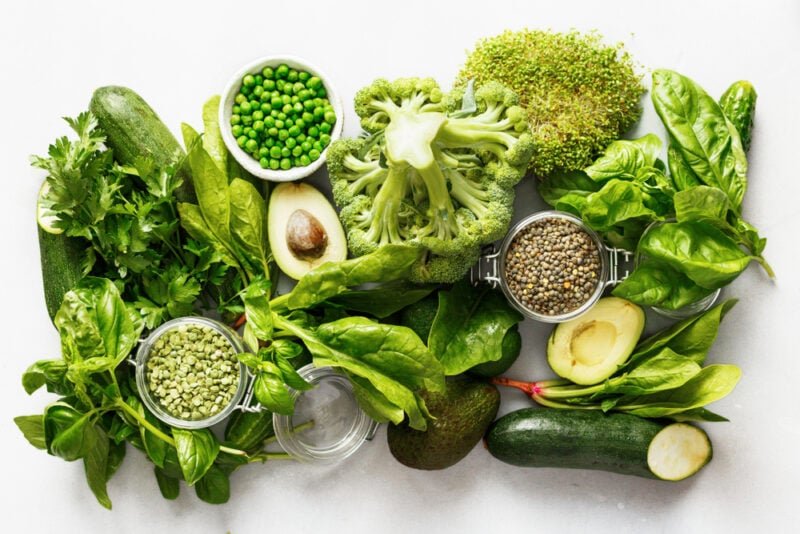How to Eat Less, and Get So Much More!
An epidemic of false beliefs and misinformation pertaining to health and longevity continues to grow out of control like a wildfire. Yet the reality of what our bodies need and want to stay healthy is relatively straightforward and simple. New York Times bestselling author, Michael Pollan, in his famous book In Defense of Food: An Eater’s Manifesto, sums it up simply: “Eat food, mostly plants, not too much.”
My own nutritional mantra for a long and healthy life is also simple: “When in doubt, eat less and move more.” (I would add “eat better” or “more naturally” as well.) Here is some information that helps guide me on the eating part of my health journey.
Modern food, consumed in typically “super-size” quantities, is the leading cause of obesity, diabetes, and metabolic disfunction, the precursor to most of the big diseases of modern life like cancer, heart disease, and dementia. Anyone serious about their health span and lifespan needs to have a nutritional plan that eliminates all or most of what we’ve come to treat as “food” and go back to the fresh, unprocessed, natural eating that was the diet our bodies thrived on for the millions of years that we were becoming human. This diet consisted largely of plants of all varieties, including roots, fruits, whole grains, seeds, and nuts, as well as fresh protein. These are the foods that nature produced and that humans spent most of every day looking for, tasting, experimenting with, and acquiring in order to eat. These are the foods that are richest in the complete components, macronutrients and micronutrients, that our bodies need for a healthy life.
Modern processed foods, especially ultra-processed grains, sugars, and oils that are the basis of addictive, feel-good comfort foods, contain almost no micronutrients, the vast array of vitamins, minerals, and other natural compounds our bodies need to function well. And the macronutrient ingredients—protein, carbohydrates, and fats—are in such a degraded or processed state they are too easily digested and/or introduce unwanted toxins, chemicals, and preservatives that overwork our bodies’ immune systems trying to get rid of them.
We tend to think “What food do I eat for my health?” is the main question to ask ourselves. But the other question is: “What food do I eat to keep my digestive system healthy?” The quality of our digestive systems is as much a part of the process of nutrition as the food itself. With natural foods we are digesting foods the way we have been for millions of years, not the “Frankenstein foods” that make up the vast proportion of damaging modern diets. Our robust bodies were simply not meant to eat these manufactured concoctions, and they do not deserve to be called “food.”
Why Are We Always Hungry?
When you look at food from the standpoint of its nutritional content and how well you are digesting it, things make more sense. You can consume less food (as long as it is fresh and natural) and still get the same nutritional benefits of larger quantities of less-nutritious food. This is what lower-calorie, higher nutritional content means. Fresh food provides the full complement of nutritional elements, plus it gives your stomach and intestines the food they thrive on to stay healthy and process and absorb the nutrients necessary for health, a perfect pairing.
The real reason processed foods become addictive is that the more we eat them, the more malnourished we actually become! Our bodies are looking for real nutrition and are not getting it, so we keep on stuffing ourselves with “zombie food” and make things even worse. (An exaggerated version of this, complete with shocking medical results, is Morgan Spurlock’s Super-Size Me, about his one-month McDonalds only diet.)
Once you stick to natural foods for a period and give your digestive system time to recover from its fast-food fix—like I did on my first detox and still do with intermittent fasting and periodic fasting-mimicking regimes—your appetite gets the message from your body that it has what it needs. And those bothersome hunger cravings go away!
Less food and better-quality food, combined with a robust digestive system, provide all the nutrition my body needs, without feeling hungry all the time. And no Ozempic or other pharmaceutical drug is necessary to artificially help me feel satisfied.
Being Empty Is OK
Calorie deprivation, eating slightly less than your body needs to function every day, is a proven longevity strategy. Why? Because your body works harder to digest the food it is given. It tunes itself up to get as much nutrition out of each morsel as it can. Hunger was a mainstay of our evolutionary past, and our bodies still function that way. This can’t happen with modern food, because the nutritional elements aren’t there to begin with. The only way to truly get what your body needs to feel satisfied is to feed yourself better-quality, natural, fresh, and unmanufactured food.
Any form of fasting or reduced caloric intake needs to have another component though, and that is feeling comfortable being empty. This is a big subject, with roots not only in food and appetite but in the areas of spirit and emotion as well. Emotional prompts can be a big part of feeling hungry all the time. Allowing for inner emptiness is a major theme in many spiritual disciplines and religions, as well as a big part of nutrition. Emptiness is experienced as the source of not only rest and harmony, but of change, innovation, creation and inspiration.
So, while I suggest you begin your “eat less” journey and exploration with food and nutrition, don’t be surprised if it leads to other realms of your miraculous, intricate, and wonderfully interconnected body and mind. Once you start caring for yourself by eating more natural food, and begin to take better care of yourself, other gears will also start to move inside.

